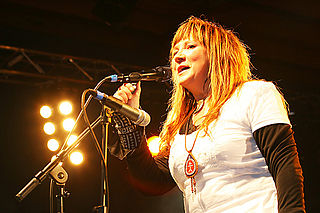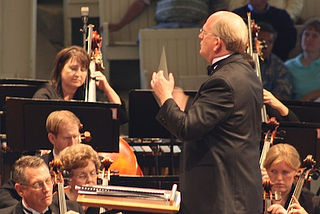A Quote by Richard Morris
But nowadays hymns are the norm, because people don't have much else to sing.
Related Quotes
One of the things that is wonderful about hymns is that they are a sort of universally shared poetry, at least among certain populations. There isn't much of that anymore either. There are very few poems people can recite, but there are quite a few hymns that, if you hum a few bars, people can at least come up with two verses. Many of the older hymns are very beautiful.
I always wanted to sing, I always loved to sing. As a child I was singing all the time, and my parents were singing all the time, but not the traditional songs because they were very Christian; the Christian Sámis learnt from the missionaries and the priests that the traditional songs were from the Devil, so they didn't teach them to their children, but they were singing the Christian hymns all the time. So I think I got my musical education in this way. And of course the traditional songs were always under the hymns, because it doesn't just disappear, the traditional way of singing.
The left believes that we're an unwarranted, undeserving superpower because we're a racist, bigoted nation from our founding. So Obama presides over America's decline and tells everybody "get used to it. This is the new norm." The new norm is no full-time jobs. The new norm is government getting bigger. The new norm is you having no wage increases for 15 years. This is what the new norm is, as we entered the global marketplace. And the American people don't want any part of that. That's not America.
If you're writing in the mainstream... Whatever that is - the norm. The norm is likely going to be funded because you're giving people what they're used to and what they're gonna get. But anything outside of that norm is going to struggle to get funded. The people who are not "the norms" deserve the chance to make art. I think it's great for all of us to consume all these voices, and that happens when you support these voices that need to be supported because they're not the automatic choice coming out of the gate.
I think that all moralities adequately serving the function of fostering social cooperation must contain a norm of reciprocity - a norm of returning good for good received. Such a norm is a necessity, I argue, because it helps relieve the strains on motivation of contributing to social cooperation when it comes into conflict with self-interest.






































